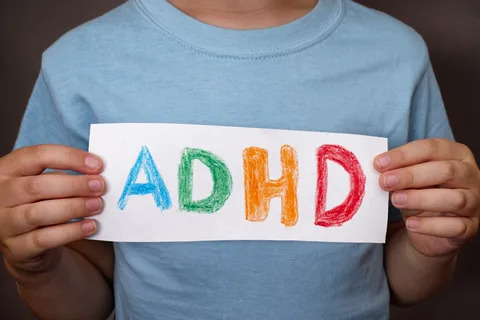
Attention-Deficit/Hyperactivity illness (ADHD) is a neurodevelopmental illness marked by symptoms such as inattention, hyperactivity, and impulsivity. It has a long-term impact on people’s academic, social, and occupational performance. Among the different treatment choices for ADHD, stimulant drugs have emerged as one of the most commonly prescribed and successful. This article will look at the function of stimulant drugs in treating ADHD symptoms, including their mechanism of action, efficacy, safety concerns, and larger implications for people with ADHD.
Understanding ADHD ymptoms.
Before digging into the role of stimulant drugs, it is critical to understand the basic symptoms of ADHD and how they affect people’s daily functioning.
Inattention: People with ADHD frequently struggle to maintain focus on tasks, becoming quickly distracted and forgetful. This symptom can have a substantial impact on academic performance, work productivity, and interpersonal relationships.
Hyperactivity manifests as excessive fidgeting, restlessness, and an inability to sit still in suitable contexts. Children with ADHD may struggle to engage in peaceful activities and appear to be always on the move.
Impulsivity is defined as behaving without considering the consequences. Individuals with ADHD may blurt out responses, interrupt others, and engage in unsafe actions as a result of their impulsivity, which can cause social and scholastic challenges.
Mechanism of Action of Stimulant Drugs
Stimulant medicines, such as methylphenidate (Ritalin, Concerta) and amphetamine (Adderall, Vyvanse), form the foundation of pharmacological treatment for ADHD. These drugs increase the amounts of neurotransmitters dopamine and norepinephrine in the brain, which are necessary for attention, impulse control, and executive functioning.
Dopamine is a neurotransmitter that controls reward processing, motivation, and attention. Stimulant medicines inhibit dopamine reuptake, increasing its availability in the synaptic cleft and improving signaling in dopamine pathways linked with attention and reward.
Norepinephrine Modulation:
Norepinephrine is another neurotransmitter that helps with arousal, alertness, and vigilance. Stimulant drugs also enhance norepinephrine levels by inhibiting reuptake, resulting in increased alertness and attentional focus.
The efficacy of stimulant medications
Numerous studies have shown that stimulant medicines are effective in treating ADHD symptoms across a variety of areas.
Symptom Reduction:
Stimulant drugs are quite helpful at lowering ADHD’s basic symptoms, such as inattention, hyperactivity, and impulsivity. Controlled trials regularly found significant improvements in symptom severity ratings and behavioral measures when compared to placebo.
ADHD can have a major impact on academic achievement due to challenges with attention, organization, and task completion. Stimulant medicines have been found to improve academic performance in children and adolescents with ADHD by increasing attention span, task tenacity, and general classroom behavior.
Functional result
In addition to symptom relief, stimulant medicines can enhance functional results in people with ADHD. By reducing disruptive behaviors and boosting self-regulation, these drugs improve social interactions, peer relationships, and general quality of life.
Safety considerations
While stimulant drugs are generally well accepted and effective, it is critical to consider safety precautions while administering them, especially in children and adolescents.
Side Effects
Stimulant medicines are known to cause decreased appetite, sleeplessness, irritability, and potential cardiovascular effects such as elevated heart rate and blood pressure. Monitoring for side effects and modifying drug doses as appropriate is critical for reducing negative reactions.
Stimulant drugs,
particularly amphetamines, have the potential for abuse and diversion because of their impact on dopamine pathways and reward processing. Healthcare providers must thoroughly screen patients for a history of substance abuse or addiction, as well as monitor for indicators of misuse during treatment.
Long-term Effects:
While short-term studies have shown that stimulant drugs are effective and safe, doubts remain about their long-term effects on growth, development, and the risk of substance dependence in adolescence and adulthood. Longitudinal studies are required to examine the long-term benefits and dangers of extended stimulant drug use in people with ADHD.
Conclusion
Stimulant drugs help manage ADHD symptoms by addressing underlying deficiencies in attention, hyperactivity, and impulsive. These drugs improve cognitive functioning, academic achievement, and functional outcomes in ADHD patients by modulating dopamine and norepinephrine neurotransmission. While stimulant drugs are generally safe and effective when taken as directed, healthcare practitioners must carefully examine safety concerns such as side effects, abuse potential, and long-term implications while prescribing them. Overall, stimulant drugs are an important therapeutic choice for people with ADHD, as they provide symptom alleviation and improve quality of life.




